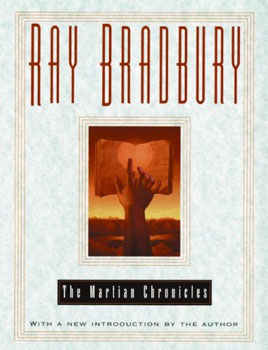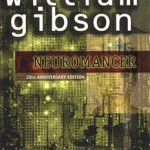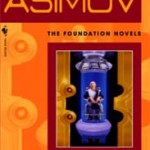The Martian Chronicles by Ray Bradbury
In high school at one point I was given an option of several books on which to do a book report, and being the science fiction fan that I was even then, I of course picked Ray Bradbury’s The Martian Chronicles. It is one of those books that has stuck with me ever since I read it, not thrust to the old bookshelf in the back of my brain. The Martian Chronicles is a future history, much in the vein of Asimov’s writing, and deals with human and alien interaction. For much of human existence we’ve looked out at the stars and wondered what or who else was out there, but this one looks a little closer to home, our own solar system, and our nearest neighbor, Mars.
The story itself is a series of loosely connected, yet chronological, vignettes that tell the story of man’s attempts to colonize Mars, despite the Martians who live there. It would take four expeditions to Mars before humans were successful, and that’s only because of the chicken pox, brought by one of the earlier expeditions. The Martians resisted the first three expeditions, the first being only two men killed by a jealous Martian husband. The second were killed by the Martians because the Martians believed they were simply insane compatriots, believable since the first alien Earth arrivals have had an increased number of Martians believing they are from Earth (a belief that likely spawned from the Martians’ telepathic ability and having unconsciously picked up on the minds of the first expedition). The Third Expedition however was treated to a different sort of welcome altogether. The native Martians projected images of the expedition’s family, luring and scattering them into individual homes where they were then killed in their sleep.
From there they set up towns just like they were on Earth and rather than understand that Mars is different, and maybe even should be different, they try to make it fit into an Earth mold. What could be more alien that walking down a Martian street and feeling like you’re in the American Mid-West? Ray Bradbury’s book Fahrenheit 451 had a decidedly social message, and so does The Martian Chronicles. The repeated attempts of man to take over the Martian landscape can be seen as analogous to the white settlers colonizing the New World. Both cases took several attempts before the colonists were successful, and in both cases an unforeseen consequence wiped out the native population. Small pox may have wiped out the Native Americans in the North, Central, and South Americas, but it was chicken pox that wiped out the Martians. The Martians, like the Native Americans, fought back at first, but both eventually were overcome by disease, and as one of the characters mentioned in the book, not just any disease, not any of the terrible or dignified diseases, but chicken pox.
After killing off a majority of the native Martians, disrespecting the civilization they had built and the “people” they were (going so far as to play music on their bones), the human race gets a message: War on Earth. Almost everyone leaves to return to their family and friends and help in what ever way they can. Most return to the fate to which they had doomed the Martians: their own deaths. In the short story “There WIll Come Soft Rains”, a story set back on Earth, an automated house continues to care for the family who once lived there. The family exists now, after the Earth all but killed itself in a nuclear war, only as charred outlines on the walls of the house. Eventually even the house is destroyed when a tree falls on it. This seems insignificant to the story, only an indication of what happened not only to the people returning to Mars but of the whole of the human race. However the imagery suggests that nature will always reclaim her own. This has deeper implications as well. It shows that humans are not, contrary to their own belief, the dominant force for life. There was life before, and there would be life after.
The future is not completely bleak, however. Humans have not completely annihilated themselves. A family leaves Earth on a rocket salvaged from the government and goes to Mars. Soon the father tells his sons that in time more people will join them, and upon looking at their reflection in the water, declares that they are the Martians now. This brings the story full circle. Were the original Martians actually humans from Earth who evolved separately because of the different environment? One of the characters had suggested that perhaps this wasn’t the first time man had made it out to his neighbor. There aren’t answers provided for this, however. This is left for the reader to interpret. What’s the lesson we can learn from this? Humankind is not all powerful, and our actions affect more than just ourselves. The universe is a big place, and it wasn’t made just for us.
“I’ve got what amounts to a religion, now. It’s learning how to breathe all over again.”







